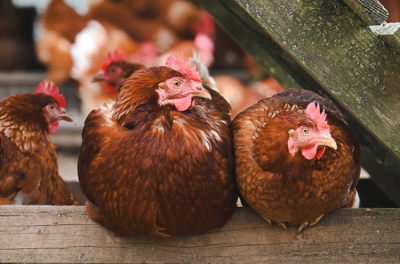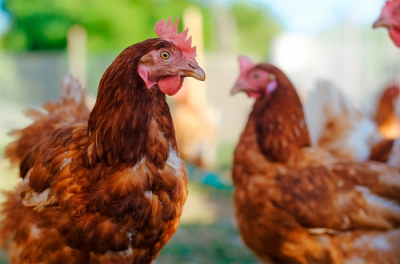

Probiotics’ Impact on Lowering Ammonia Levels and Strengthening Immune Responses in Poultry
Air quality within poultry houses is a crucial factor in the success of flock management. One of the most prevalent gases found in intensive poultry environments is ammonia (NH₃). Ammonia is produced through the deamination and decomposition of nitrogen-containing compounds, particularly uric acid in poultry feces, as a result of microbial activity.
High concentrations of ammonia are often detected in poultry houses with suboptimal ventilation or poor litter management. Such conditions not only cause discomfort for workers but also negatively affect bird health and performance, particularly in terms of immune function and disease resistance. Exposure to ammonia levels exceeding 20–25 ppm can lead to irritation of the respiratory mucosa, damage to tracheal cilia, and impairment of the protective epithelial barrier. These injuries hinder the natural clearance mechanisms of the respiratory tract, thereby predisposing birds to respiratory pathogens such as Mycoplasma gallisepticum, Escherichia coli, and Infectious Bronchitis Virus (IBV). Furthermore, elevated ammonia levels can induce systemic oxidative stress, resulting in reduced phagocytic activity, lower antibody production, and weakened responses to vaccination. This compromised immune state often leads to increased morbidity and mortality rates, along with decreased feed conversion efficiency.
The activity of ammonia-producing microbes can be suppressed through the use of probiotics. Probiotics enhance protein digestion efficiency, thereby reducing residual nitrogen in excreta. They also inhibit ureolytic bacteria that convert urea into ammonia and produce organic acids that lower intestinal pH, suppressing the growth of pathogenic bacteria and strengthening intestinal epithelial integrity. In addition, probiotics can activate Gut-Associated Lymphoid Tissue (GALT), leading to increased secretion of immunoglobulin A (IgA) and stimulation of nonspecific immune responses such as macrophage activity and cytokine production. These combined effects contribute to improved gut health and enhanced systemic immunity in poultry.
The use of probiotics in poultry health management offers dual benefits: promoting intestinal health while mitigating environmental pollution within poultry houses. By biologically reducing ammonia production, probiotics help maintain optimal respiratory and immune functions. Several studies have reported that probiotic supplementation can reduce fecal ammonia concentrations by 20–40%, accompanied by higher post-vaccination antibody titers and improved growth performance.
You may also like

Probiotic to Optimize Egg Production and Improve t...
In the poultry industry, production efficiency is...

The Role of Prebiotics in Supporting Gut-Associate...
Gut-Associated Lymphoid Tissue (GALT) is the large...

Gut Health, Strong Flock: The Key to Optimal Poult...
Poultry productivity, particularly in the broiler...